
Traditional market traders face great pressure, in the context of low-priced foreign goods being sold widely online - Photo: BONG MAI
This not only causes many online stores to go bankrupt but also has a major impact on the traditional retail system, which has to bear higher operating costs and is subject to strict supervision of taxes, invoices, etc. In the fashion industry alone, since the beginning of the year, a series of brands have announced closures and cessation of business.
Bitter breakups of Vietnamese brands
After nearly seven years of developing product lines for both men and women, Maison Long has just had to say goodbye to the women's casual fashion segment.
"This is not an easy decision, but it is the right step for the brand to go the long way more firmly and completely," said Mr. Nguyen Tran Duc Long - founder of the brand. He said that after a long journey of operation, the unit realized that resources were still limited, from finance to human resources.
Similarly, Hnoss - a 16-year-old women's fashion brand - has just announced that it will stop operating, gradually withdrawing its products from direct sales channels, social networks and e-commerce platforms.
As the founder, Ms. Co Hue Anh shared: "This was the first dream, where the days of youth were wrapped up in each design, each collection, each sleepless night for new campaigns. This is also the place that held many memories, sweat and laughter of many staff members".
The door has also closed on casual wear at the Edini brand, after 12 years of pursuing trend-driven products.
According to founder Quyen Nguyen, this is a necessary step because it is impossible to continue competing in the race to erode profits, especially with pressure on e-commerce platforms.
In the spiral of cheap prices, the unit cannot trade quality to compete, pursue the quick race, participate in sales tricks.
Having been involved in e-commerce for many years, Ms. K. Thanh (HCMC) admitted that even importing goods from China for resale is no longer as effective as before, because domestic stores are far behind Chinese retailers in terms of original prices and shipping costs.
Not to mention, domestic sellers are also under a lot of pressure from taxes to state agencies, many types of fees for e-commerce platforms, operating costs..., while foreign online merchants enjoy many incentives.
"Without specific and drastic support policies, small traders like me might have to close shop," said Ms. K.
Expanding foreign stores, suffocating domestic goods
"Vietnam is focusing on developing the private economy , in which domestic enterprises should enjoy home-field advantage, but in reality are being disadvantaged due to current policies," Associate Professor Dr. Nguyen Huu Huan - senior lecturer at Ho Chi Minh City University of Economics - said, adding that if import tax is exempted for small-value imported goods, Vietnamese enterprises will have difficulty competing, especially with goods imported from China, not to mention unfair competition.
Furthermore, to cope with the US's reciprocal tariffs, China has recently stepped up market diversification, focusing on pushing cheap products to other countries, including Vietnam. With large production scale and modern production lines, helping to reduce costs, Chinese goods have many advantages in terms of diversity and low prices.
Meanwhile, most Vietnamese enterprises are small and medium-sized, have limited financial resources, and find it difficult to produce in large quantities to reduce costs.
According to Master Huynh Ho Dai Nghia - lecturer of public policy at the University of Economics and Finance, Ho Chi Minh City, the policy of exempting import tax for orders with a value of less than 1 million VND is unfair to domestically produced goods, negatively affecting domestic enterprises.
Because domestic enterprises still have to fully comply with tax obligations, low-value imported goods are tax-free and create price advantages.
"If consumers prioritize buying cheap imported goods, it will reduce sales of domestic businesses, affecting their ability to invest, expand production and create jobs," Mr. Nghia warned.
He said that the proposed tax exemption would lead to budget losses and commercial fraud. In fact, there are many cases of taking advantage of the tax exemption policy by dividing orders into smaller ones to avoid taxes.
In particular, some business contacts may disguise themselves as individual consumers to import goods for commercial purposes without fully fulfilling tax obligations. Thus, when domestic goods have to bear many types of taxes and costs, while low-value imported goods are exempt from tax, it is clear that the competitive environment will be distorted.
This is particularly worrying for sensitive manufacturing industries such as fast-moving consumer goods, fashion, household appliances and cosmetics.
Major fashion chains stop selling casual products for women, shifting to focus on ao dai with a higher segment - Photo: EDINI
Average value is just over 45,000 VND/import order
According to the Vietnam e-commerce report for the first quarter and forecast for the second quarter of 2025 by the Metric platform, imported goods on Shopee (one of the largest e-commerce platforms in Vietnam) are increasingly competing with domestic sellers thanks to the advantage of low prices, diverse designs and suitability to domestic customer needs.
In the first quarter of 2025, imported goods reached VND3,600 billion in sales with more than 80 million products sold, increasing by 12.2% in sales and 7.1% in output. Although accounting for only 5.9% of the total market share, this group still attracts customers thanks to the advantage of low prices, diverse designs and suitability to domestic customers' tastes. The average value of each product is only VND45,206, showing that consumers prefer to buy in large quantities at low costs.
This trend is increasing the competitive pressure for domestic sellers, especially in the mass market product group. This poses a greater competitive challenge for domestic sellers, forcing them to improve product quality and pricing strategies. In this context, the advantage of delivery speed and understanding of the domestic market will be the key factors for domestic sellers to maintain market share.
Many stores specializing in selling Chinese-origin goods have sprung up, along with a series of online retailers from the " world factory" pushing goods into Vietnam - Photo: BONG MAI
Foreign traders account for 20% of Vietnamese e-commerce platforms
According to the Vietnam E-commerce Index 2025 report of the Vietnam E-commerce Association, the rapid development of information and communication technology as well as logistics services has strongly supported cross-border online retail activities (B2C). As this channel develops rapidly and increases in scale during the period 2016 - 2024, the issue of state tax management is increasingly emerging.
The Ministry of Finance's data also shows that the total revenue from e-commerce activities of domestic enterprises, business households and foreign suppliers without permanent establishments in Vietnam accounts for about 20% of the e-commerce market revenue. Many businesses have not yet declared and paid taxes according to tax laws on revenue from this activity.
Must increase digital customs, plug fraud loopholes
Recently, many countries around the world have issued strict regulations to "plug loopholes" and apply or increase taxes to deal with the "tornado of cheap goods" flooding in through e-commerce channels.
According to Dr. Nguyen Huu Huan, in the general context of the world economy and Vietnam, levying value added tax (VAT) as well as import tax on small-value items sold through e-commerce platforms is completely reasonable and needs to be collected correctly and sufficiently.
Without policies to support and create fairness for domestic businesses, cheap foreign goods will flood in, making it difficult for Vietnamese businesses to survive in the long term. Regarding customs procedures, Mr. Huan said that manually declaring each small item can cause congestion.
In the process of enhancing digital transformation, it may be difficult at first, but it must still be implemented resolutely, thereby ensuring effective tax control and collection.
Meanwhile, according to Mr. Nghia, the key factor to prevent fraud is connecting data between parties including buyers, senders, e-commerce platforms and customs authorities.
Accurately tracking tax-free thresholds for each user requires a synchronized data system that operates in real time and clearly distinguishes between personal consumption goods and imported goods for disguised business purposes. When digital customs capacity is not guaranteed, tax-free policies are easily exploited, causing long-term damage to the country and domestic enterprises.
"Vietnam always strives to develop cross-border e-commerce, but not at the expense of the safety, fairness and sustainable development of domestic enterprises. Therefore, the core issue in the policy-making process is to closely balance the goals: encouraging consumption and e-commerce, protecting domestic production, ensuring tax fairness and preventing budget losses," Mr. Nghia emphasized.
Mr. NGUYEN LAC HUY (representative of CellphoneS technology retail system):
Tax exemption is creating legal loopholes for imported goods.
In my opinion, the policy of exempting import tax for small value orders (from 1 million VND or less) is no longer suitable in the current context, potentially increasing the inequality between imported goods and domestically produced and distributed goods.
Enterprises are operating legally, paying all taxes and fees including: VAT, import tax, corporate income tax; social insurance, health insurance, unemployment insurance for employees; operating costs, after-sales service, genuine warranty according to Vietnamese standards.
Meanwhile, small-scale imported goods are tax-free and not subject to the same tax pressure, but compete directly in the same consumer market. This creates a gap in the playing field between official goods and disguised "hand-carried" goods.
In addition, tax exemption can create conditions for counterfeit and poor quality goods to enter the market.
In reality, many small orders from abroad via post and cross-border e-commerce show signs of containing counterfeit goods, goods that violate intellectual property rights, or goods of unknown origin and without quality control.
It can be said that the tax exemption policy for small orders will create a "legal loophole" for subjects to take advantage of, dividing orders to avoid taxes, not only causing budget losses but also posing risks to consumers, especially in groups of technology products, cosmetics, functional foods...
Therefore, instead of tax exemption, the authorities should consider imposing a fixed minimum tax (e.g. 10-15%) on all cross-border import orders - whether small or large, while strengthening post-audit and publicizing personal import data via international e-commerce channels, as well as prioritizing the building of a healthy competitive environment, encouraging official production and distribution and protecting consumers.
Mr. DOAN TRONG KHOI (General Director of Vimarket Vietnam Joint Stock Company):
Must protect domestic production

According to data from the MasOffer affiliate marketing network (owned and operated by Vimarket Vietnam), the average order value on the Shopee and Tiktok Shop platforms is about 250,000 - 300,000 VND.
With the advantage of production scale and production capacity, manufacturers from China create a quantity of goods at much lower prices than domestically, with prices that are attractive to consumers, mainly young people on e-commerce platforms.
In addition, short shipping times, convenient payment methods, and rich support services make cross-border shopping on shopping apps very easy.
Therefore, new policies need to ensure the interests of the State, businesses and consumers. On the State side, considering tax rates appropriate for small orders under 1 million VND to increase budget revenue and not increase costs too much for consumers, while creating a more equal playing field for domestic manufacturing enterprises.
For domestic manufacturing enterprises, it is necessary to improve competitiveness, diversify designs, improve product quality, optimize production costs, diversify sales channels, and have good after-sales policies to avoid being inferior at home.
I believe that if we can do the above, consumers will have more choices and benefit more from policies and from domestic and foreign manufacturing enterprises.
Tax policies need to aim for fairness for domestic enterprises, ensure transparency and make the market healthy, especially in the context of cross-border e-commerce growing rapidly but lacking control. Maintaining or expanding import tax exemption for small orders should not be a priority, without appropriate measures to manage and protect the domestic market.
Don't create competitive advantages for imported goods.
In a document providing comments on the draft decree regulating customs management of exported and imported goods transacted via e-commerce recently sent to the Ministry of Finance, the Vietnam Federation of Commerce and Industry (VCCI) said that the proposal to exempt import tax for orders with small value (from 1 million VND or less) in Article 12 of the draft is not really suitable and risks continuing to create inequality with domestically produced goods.
According to VCCI, in 2024, more than 324 million imported products were sold through a Shopee platform, generating revenue of VND14,200 billion, with an average value of only VND43,682/product. Tax exemption for orders under VND1 million means that most imported e-commerce goods will not be subject to import tax.
This creates inequality as domestic enterprises still have to pay taxes on imported raw materials to produce goods, invisibly creating a competitive advantage for foreign goods.
VCCI believes that it is necessary to consider applying a comprehensive import tax policy, without exemptions, for imported e-commerce goods.
Source: https://tuoitre.vn/dung-tiep-tay-cho-hang-nhap-gia-re-20250529224837191.htm


![[Photo] Nhan Dan Newspaper launches “Fatherland in the Heart: The Concert Film”](https://vphoto.vietnam.vn/thumb/1200x675/vietnam/resource/IMAGE/2025/10/16/1760622132545_thiet-ke-chua-co-ten-36-png.webp)








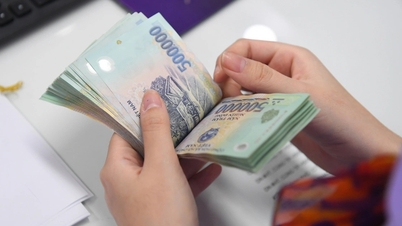




















































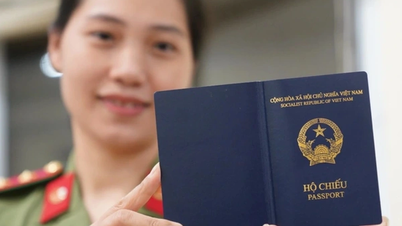




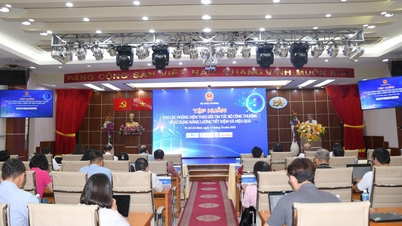



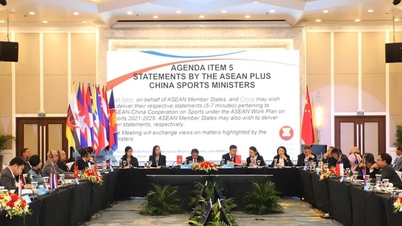
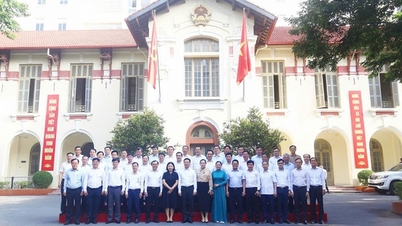




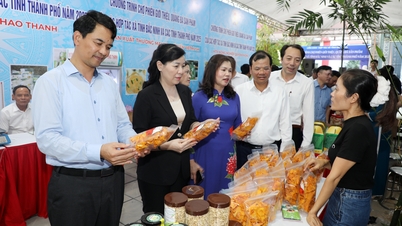





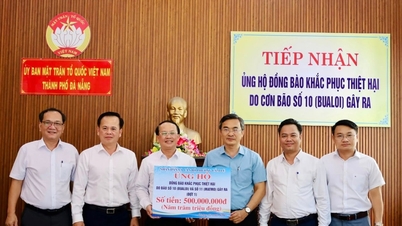
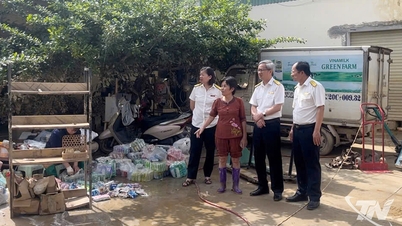












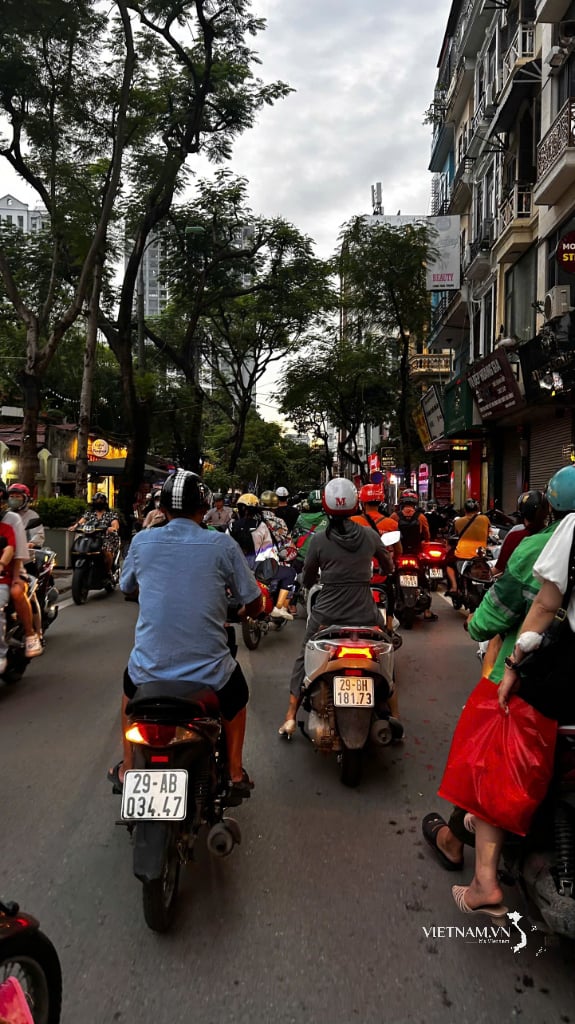



Comment (0)